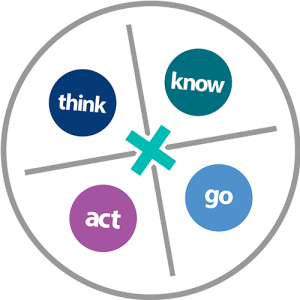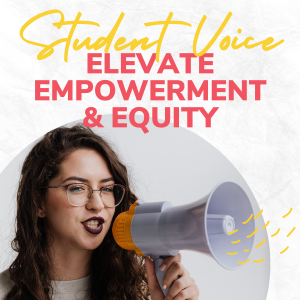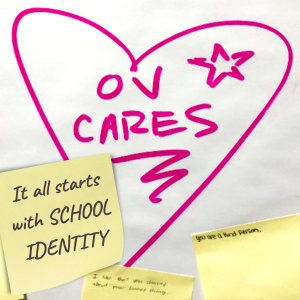[vc_row type=”4″ padding_top=”0″ padding_bottom=”0″ bg_color=”#555759″ css=”.vc_custom_1531246742081{background-color: #555759 !important;}”][vc_column width=”1/4″ css=”.vc_custom_1531246853520{margin-top: 0px !important;margin-bottom: 0px !important;border-top-width: 0px !important;border-bottom-width: 0px !important;padding-top: 0px !important;padding-bottom: 0px !important;}”][vc_single_image image=”44232″ img_size=”medium”][/vc_column][vc_column width=”3/4″ css=”.vc_custom_1531246514825{margin-bottom: 0px !important;border-bottom-width: 0px !important;padding-bottom: 0px !important;}”][vc_column_text css=”.vc_custom_1531846026269{margin-top: 0px !important;margin-right: 0px !important;margin-bottom: 0px !important;margin-left: 0px !important;border-top-width: 0px !important;border-right-width: 0px !important;border-bottom-width: 0px !important;border-left-width: 0px !important;padding-top: 0px !important;padding-right: 0px !important;padding-bottom: 0px !important;padding-left: 0px !important;background-color: #00bcb4 !important;}”]
ENGAGING
STAKEHOLDERS
[/vc_column_text][/vc_column][/vc_row][vc_row][vc_column][ultimate_spacer height=”20″][/vc_column][/vc_row][vc_row][vc_column width=”1/3″][vc_single_image image=”44353″ img_size=”medium” alignment=”center”][vc_column_text css=”.vc_custom_1531846666061{margin-right: 0px !important;margin-left: 0px !important;border-right-width: 0px !important;border-left-width: 0px !important;padding-right: 0px !important;padding-left: 0px !important;background-color: #00bcb4 !important;}”]
Leveraging Local Control for Stakeholder Engagement
[/vc_column_text][vc_column_text]
Anaheim Union High School District (AUHSD)’s Local Control Accountability Plan (LCAP) stakeholder engagement processes are some of the most innovative we have seen in California.
More broadly, AUHSD’s system of stakeholder engagement has generated a shared language and common vision for deeper learning. This snapshot provides an overview of AUHSD’s system of stakeholder engagement, supported in part by funds from the Local Control Funding Formula (LCFF). Specific examples include AUHSD’s Parent Leadership Academies, Parent Learning Walks, and LCAP stakeholder sessions. Finally, we will share promising practices in stakeholder engagement exemplified by AUHSD. We believe AUHSD’s system of stakeholder engagement can serve as a model for other districts.[/vc_column_text][vc_row_inner css=”.vc_custom_1531849150578{background-color: #dbdbdb !important;}”][vc_column_inner css=”.vc_custom_1531849303447{padding-right: 0px !important;padding-left: 0px !important;}”][vc_column_text css=”.vc_custom_1531849286547{margin-right: 0px !important;margin-left: 0px !important;border-right-width: 0px !important;border-left-width: 0px !important;padding-right: 0px !important;padding-left: 0px !important;background-color: #555759 !important;}”]
Structures and Systems That Support Stakeholder Engagement In AUHSD
[/vc_column_text][vc_column_text css=”.vc_custom_1531849444081{padding-right: 15px !important;padding-left: 15px !important;}”]Vision statement
Mission statement
LCAP
Budget
Stakeholder engagement meetings
Community surveys
Steering committee
Parent Learning Walks
Parent Leadership Academy
School-based family centers[/vc_column_text][/vc_column_inner][/vc_row_inner][/vc_column][vc_column width=”2/3″][vc_column_text css=”.vc_custom_1531848829043{margin-right: 0px !important;margin-left: 0px !important;border-right-width: 0px !important;border-left-width: 0px !important;padding-right: 0px !important;padding-left: 0px !important;background-color: #00bcb4 !important;}”]
Parent Leadership Academies
[/vc_column_text][vc_column_text]Currently, AUHSD offers two eight-week Parent Leadership Academy (PLA) courses. The first course familiarizes parents with the education system, including important information about the transition to postsecondary education, such as financial aid and the differences between two- and four-year colleges. The second course dives deeper into what it means to be college and career ready, focusing on the 5Cs (collaboration, communication, creativity, critical thinking, and character), the Four Keys to College and Career Readiness, and growth mindsets. These academies also train parents to teach other parents about college and career readiness and provide opportunities for parents to engage in their children’s schools. Parent Leadership Academies are led by Family and Community Engagement Specialists (FACES), who are supported by LCFF funding.[/vc_column_text][vc_column_text css=”.vc_custom_1531848842260{margin-right: 0px !important;margin-left: 0px !important;border-right-width: 0px !important;border-left-width: 0px !important;padding-right: 0px !important;padding-left: 0px !important;background-color: #00bcb4 !important;}”]
Parent Learning Walks
[/vc_column_text][vc_column_text] Parent Learning Walks offer parents an opportunity to learn more about a school’s approach to deeper learning and are supported by LCFF funding. After a brief orientation, parents visit several classrooms in small groups and use an observation rubric to guide reflective conversations about how the observed teaching and learning promotes the 5Cs.
Parent Learning Walks offer parents an opportunity to learn more about a school’s approach to deeper learning and are supported by LCFF funding. After a brief orientation, parents visit several classrooms in small groups and use an observation rubric to guide reflective conversations about how the observed teaching and learning promotes the 5Cs.
At the conclusion of each learning walk, parent groups reconvene and discuss ways to support their students at home. In 2014–15, AUHSD conducted 315 Parent Learning Walks. AUHSD used its LCAP to set and achieve the goal of increasing the number of Parent Learning Walks by 100%, to 630, in 2015–16.[/vc_column_text][vc_column_text css=”.vc_custom_1531848855492{margin-right: 0px !important;margin-left: 0px !important;border-right-width: 0px !important;border-left-width: 0px !important;padding-right: 0px !important;padding-left: 0px !important;background-color: #00bcb4 !important;}”]
LCAP Stakeholder Input
[/vc_column_text][vc_column_text]AUHSD’s LCAP stakeholder engagement process is extensive by design. The nearly half-year process includes six separate stakeholder sessions attended by students, parents, teachers, classified staff, administrators, and various community members. Three sessions are held in large-group settings; in the other three, stakeholders self-select into one of eight focus groups aligned to the state’s eight LCAP priorities. Each focus group reviews past LCAP goals and services within their priority area through AUHSD’s vision and mission statements.
Recommendations from these stakeholder meetings and the results of student, parent, faculty, staff, and community surveys are shared with the LCAP steering committee, which uses them to update and revise the district’s LCAP. During the final stakeholder engagement meeting, the Chief Academic Officer presents goals and actions from the latest LCAP draft for participants to approve, modify, or reject. The final LCAP draft is then submitted to various community associations and specialized stakeholder groups before presentation to the Orange County Department of Education and to the district’s Board of Trustees.[/vc_column_text][vc_column_text css=”.vc_custom_1531848868495{margin-right: 0px !important;margin-left: 0px !important;border-right-width: 0px !important;border-left-width: 0px !important;padding-right: 0px !important;padding-left: 0px !important;background-color: #00bcb4 !important;}”]
Alignment to Promising Practices in Stakeholder Engagement
[/vc_column_text][vc_column_text]For many districts, stakeholder engagement begins and ends with the LCAP, and often the process is less extensive. AUHSD recognizes additional stakeholder engagement processes outside of LCAP sessions are needed to sustain a shared vision for deeper learning.[/vc_column_text][/vc_column][/vc_row][vc_row][vc_column][ultimate_spacer height=”24″][vc_single_image image=”44316″ img_size=”full” alignment=”center” style=”vc_box_rounded”][vc_column_text]This list of promising practices is not meant to be comprehensive and, rather, highlights the promising practices already employed by AUHSD in an effort to build strong connections with parents and community members. This list was curated from resources that can be found in the Tools for Community Engagement section below.[/vc_column_text][/vc_column][/vc_row][vc_row][vc_column width=”2/3″][vc_column_text css=”.vc_custom_1531848947199{margin-right: 0px !important;margin-left: 0px !important;border-right-width: 0px !important;border-left-width: 0px !important;padding-right: 0px !important;padding-left: 0px !important;background-color: #00bcb4 !important;}”]
INTENTIONAL stakeholder engagement is informed by a clear vision
[/vc_column_text][vc_column_text]The purpose and objectives of stakeholder engagement should be explicit and linked to instructional goals. As evidenced by its mission statement and LCAP goals, AUHSD has a clear vision for deeper learning in which stakeholders play a key role. By explicitly identifying parents and the community as stakeholders, AUHSD is committing itself to partnering with them as it carries out its mission.[/vc_column_text][vc_column_text css=”.vc_custom_1531848988598{margin-right: 0px !important;margin-left: 0px !important;border-right-width: 0px !important;border-left-width: 0px !important;padding-right: 0px !important;padding-left: 0px !important;background-color: #00bcb4 !important;}”]
MINDFUL stakeholder engagement is accessible to the community
[/vc_column_text][vc_column_text]Stakeholder engagement opportunities are informed by an understanding of participation barriers, such as work schedules, family responsibilities, transportation, and English language proficiency. To address these issues, AUHSD provides multiple avenues to participation (e.g., LCAP surveys, LCAP meetings, Parent Learning Walks, and Parent Learning Academies), offers interpreters to parents and community members, and administers LCAP surveys in four languages.[/vc_column_text][vc_column_text css=”.vc_custom_1531849026110{margin-right: 0px !important;margin-left: 0px !important;border-right-width: 0px !important;border-left-width: 0px !important;padding-right: 0px !important;padding-left: 0px !important;background-color: #00bcb4 !important;}”]
MEANINGFUL stakeholder engagement integrates data
[/vc_column_text][vc_column_text]A key feature of AUHSD’s LCAP stakeholder sessions requires participants to analyze data and provide recommendations designed to influence district policies and procedures. For example, during LCAP breakout meetings, stakeholders analyze student achievement data against the backdrop of the district’s mission and vision for deeper learning.
The district also measures outcomes of stakeholder engagement against intended goals, and this evaluation guides future engagement practices. For example, district leaders track how many stakeholders attend LCAP meetings, complete LCAP surveys, and participate in Parent Learning Walks to monitor their ability to engage stakeholders.[/vc_column_text][vc_column_text css=”.vc_custom_1531848980341{margin-right: 0px !important;margin-left: 0px !important;border-right-width: 0px !important;border-left-width: 0px !important;padding-right: 0px !important;padding-left: 0px !important;background-color: #00bcb4 !important;}”]
EFFECTIVE stakeholder engagement is supported by organizational systems and structures
[/vc_column_text][vc_column_text]In AUHSD, stakeholder engagement is reinforced by established structures, policies, and procedures. Importantly, district roles do not depend on individuals. Instead, the district’s system of stakeholder engagement is supported by AUHSD’s identity, as demonstrated by being explicitly stated in the district’s vision, mission statement, LCAP goals, and budget. Stakeholder engagement occurs through several different organizational structures, including LCAP stakeholder meetings, FACES, Parent Learning Walks, and parent and student surveys. These structures are established and supported by several different district personnel.
Stakeholder engagement is a powerful tool. However, partnering with community members beyond school walls can be time consuming and costly. It is also easy to simply schedule parent-teacher conferences, hold school open houses, and conduct LCAP sessions—that is, it is relatively easy to comply with minimum stakeholder engagement requirements. What is far more difficult, and what AUHSD is pursuing, is meaningful, consistent, and effective stakeholder engagement. AUHSD leaders realize that pursuing a vision requires input and support from all stakeholders. As described previously, AUHSD set a clear vision, established a system of stakeholder engagement to refine and support that vision, and took steps to ensure accessibility. As districts create their own plans for stakeholder engagement, we encourage them to consider AUHSD’s promising approach and examine the following resources for approaches best suited to their particular needs.[/vc_column_text][/vc_column][vc_column width=”1/3″ css=”.vc_custom_1531849680811{background-color: #555759 !important;}”][vc_single_image image=”44234″ img_size=”medium” alignment=”center” css=”.vc_custom_1531849917565{margin-bottom: 0px !important;border-bottom-width: 0px !important;padding-bottom: 0px !important;}”][vc_column_text css=”.vc_custom_1531849895606{margin-top: 0px !important;margin-right: 0px !important;margin-left: 0px !important;border-top-width: 0px !important;border-right-width: 0px !important;border-left-width: 0px !important;padding-top: 0px !important;padding-right: 0px !important;padding-left: 0px !important;background-color: #dbdbdb !important;}”]
AUHSD’s Vision for Deeper Learning
[/vc_column_text][vc_column_text]Most stakeholders agree that students who succeed after high school are equipped with more than the ability to read, write, and do math. Among the theories and frameworks for college and career readiness, deeper learning has emerged as a useful concept for describing a set of cognitive, interpersonal, and intrapersonal skills deemed critically important for students to develop prior to pursuing their postsecondary aspirations. At its core, deeper learning is the “process through which an individual becomes capable of taking what was learned in one situation and applying it to new situations.”
AUHSD recognizes that meaningful pursuit of deeper learning requires a significant shift in mindsets for all stakeholders, considering readiness has been defined almost exclusively as proficiency in numeracy and literacy. AUHSD is committed to pursuing deeper learning through the 5Cs, and ensuring all stakeholders have an understanding of the importance of these skills: “skills like working in groups (collaboration), expressing themselves verbally and in writing (communication), thinking on their feet (creativity), knowing how to find solutions (critical thinking), and having integrity, kindness, and empathy for others (character).”
AUHSD Superintendent
Michael Matsuda
[/vc_column_text][/vc_column][/vc_row][vc_row][vc_column][vc_single_image image=”44317″ img_size=”full” alignment=”center” style=”vc_box_rounded”][vc_column_text css=”.vc_custom_1531848035200{margin-right: 0px !important;margin-left: 0px !important;border-right-width: 0px !important;border-left-width: 0px !important;padding-right: 0px !important;padding-left: 0px !important;background-color: #555759 !important;}”]
Tools for Community Engagement
[/vc_column_text][/vc_column][/vc_row][vc_row][vc_column width=”1/2″][vc_column_text]
Strategies for Community Engagement in School Turnaround
Through a study of low-performing schools, the Reform Support Network identified five key components of successful community engagement for school turnaround. For each component, the report describes different approaches schools have taken.
strategies-for-community-engagement-in-school-turnaround.pdf (2866 downloads ) [/vc_column_text][vc_column_text]
The Power of Parents: Research Underscores the Impact of Parent Involvement in Schools
EdSource describes the role of community engagement in California’s Local Control Funding Formula and clearly outlines the benefits, barriers, and best practices of family engagement.
Power-of-Parents-Feb-2014.pdf (3007 downloads ) [/vc_column_text][vc_column_text]
Ready or Not: How California School Districts are Reimagining Parent Engagement in the Era of Local Control Funding Formula
Families in Schools addresses common challenges to incorporating parent engagement in California schools by sharing district leaders’ experiences and recommendations.
families_in_schools_lcap_report.pdf (2785 downloads ) [/vc_column_text][/vc_column][vc_column width=”1/2″][vc_column_text]
Handbook on Family and Community Engagement
- Sam Redding, Marilyn Murphy, and Pam Sheley
- School Community Network
This comprehensive report compiles articles covering diverse aspects and issues of community engagement, such as engaging with families from diverse backgrounds, engaging families of children with disabilities, empowering families to support homework completion and effective study habits, community engagement in rural schools, and using data in engagement practices.
The editors synthesize the report into a checklist of best practices for state education agencies, local education agencies, and schools.
FACEHandbook.pdf (2832 downloads ) [/vc_column_text][vc_column_text]
Seeing is Believing: Promising Practices for How School Districts Promote Family Engagement
- Helen Westmoreland, Heidi M. Rosenberg, M. Elena Lopez, and Heather Weiss
- National PTA, Harvard Family Research Project
This issue brief lists key components and best practices of family engagement and discuss how districts can build systems to support engagement. The authors describe family engagement practices and systems in six school districts throughout the United States.
SeeingIsBelieving-HFRPpdf.pdf (2720 downloads ) [/vc_column_text][/vc_column][/vc_row][vc_row][vc_column][vc_column_text]Download a .pdf version of this snapshot: Snapshots-of-Whats-Working-Stakeholder-Engagement.pdf (1795 downloads ) [/vc_column_text][/vc_column][/vc_row]




